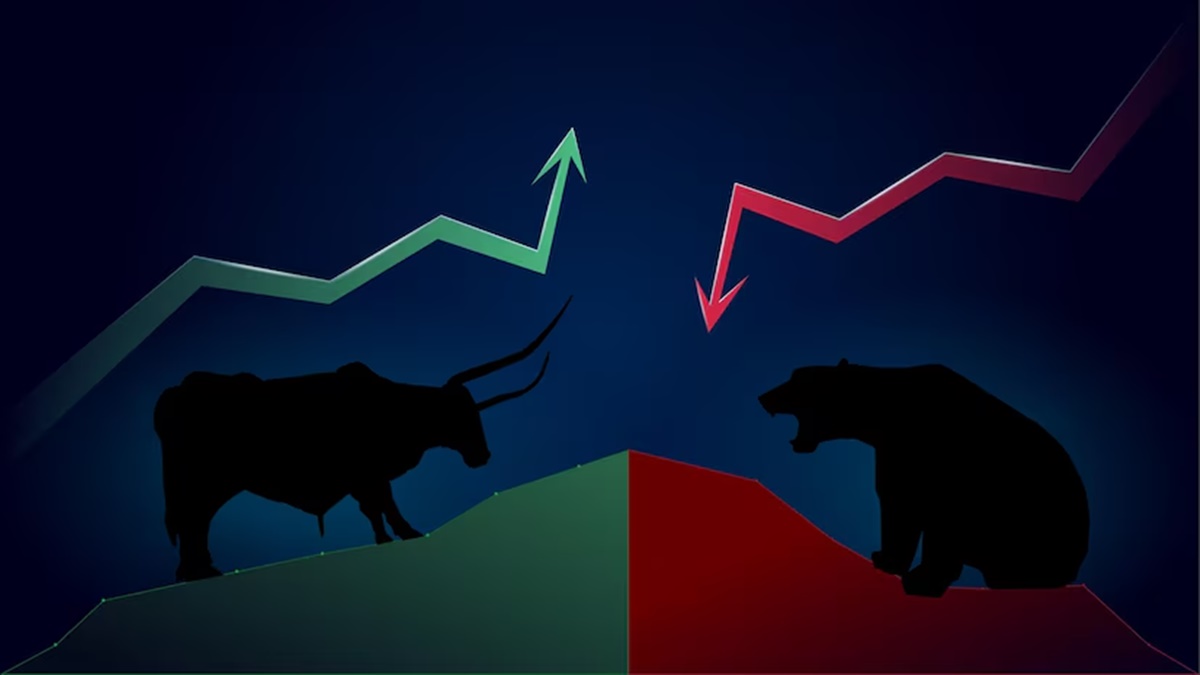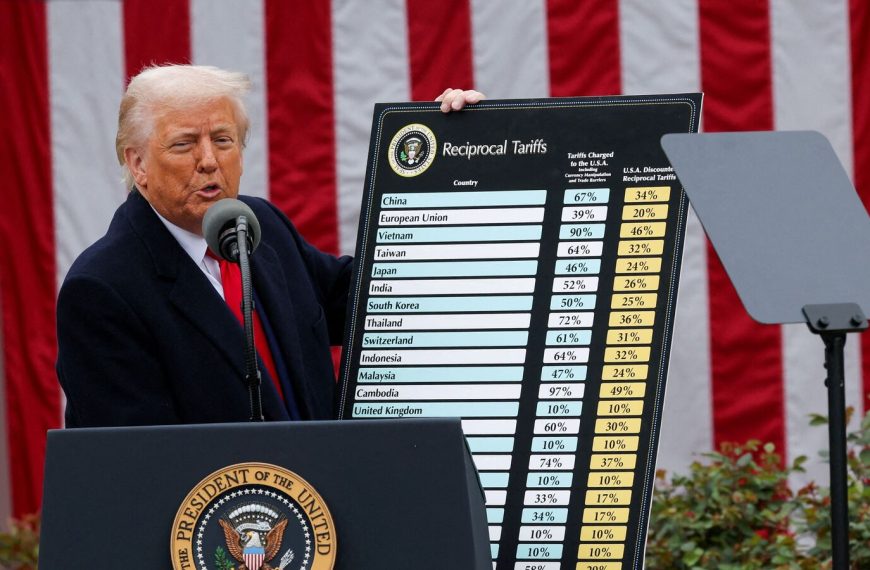Stock Market Sees Significant Drop Amid Tariff Concerns
On April 1, the stock market experienced a sharp downturn, coinciding with the start of a new financial year. This unsettling turn of events saw major stock indices plummet by over 1.5%, marking the most significant one-day decline in over a month. Investors were gripped by anxiety surrounding the imminent implementation of U.S. President Donald Trump’s tariffs, which were set to take effect on April 2.
Major Indices Tumble
The Sensex fell by 1,390.41 points, equivalent to a 1.80% drop, closing at 76,024.51. Meanwhile, the Nifty index declined by 353.65 points, or 1.50%, finishing at 23,165.70. Notably, Indian equity markets were closed the previous day in observance of Eid.
- Sensex: -1,390.41 points (-1.80%)
- Nifty: -353.65 points (-1.50%)
Broader Market Resilience
Despite the significant drops in the primary indices, the broader market displayed some resilience. The BSE Midcap index faced a 1.04% decline, while the BSE Smallcap index managed a slight increase of 0.07%. Overall, market breadth remained positive, with 2,708 stocks advancing against 1,344 declining.
Impact of Major Banks
Prominent contributors to the Sensex’s decline were HDFC Bank and ICICI Bank, which together accounted for over 40% of the index’s loss, with declines of 400 points and 189 points, respectively.
Investor Behavior Shifts
Foreign Portfolio Investors (FPIs) turned net sellers, offloading shares worth ₹5,901.63 crore, while Domestic Institutional Investors (DIIs) purchased shares totaling ₹4,322.58 crore, as per provisional data from the BSE.
Prashanth Tapse, Senior VP of Research at Mehta Equities, noted, “The market saw a pullback as investors reduced their exposure ahead of the tariff implementation, which could negatively affect India’s trading position with the U.S.”
Global Market Comparison
While Indian markets struggled, many global peers performed better, with countries like Malaysia and Singapore showing slight declines of 1.44% and 0.09%, respectively. The overall sentiment was clouded by concerns that tariffs could disrupt international trade, leading to increased market volatility, according to Sundar Kewat, a technical analyst at Ashika Institutional Equity.
Increased Market Volatility
Reflecting these uncertainties, the India VIX surged by 8.37%, reaching 13.78, indicating heightened market volatility. Consequently, investors lost a staggering ₹3.44 lakh crore in wealth, reducing the total market capitalization on the BSE to ₹409.43 lakh crore.
Sector Performance Insights
Sectors such as real estate, consumer durables, IT, financial services, and technology faced the steepest declines, with losses reaching up to 3.05%. Conversely, only the telecom and oil & gas sectors managed to post gains.
- Top Decliners: HCL Tech, Bajaj Finserv, HDFC Bank, Bajaj Finance, and Infosys, with declines up to 3.87%.
- Only Gainers: IndusInd Bank (up 5.11%) and Zomato (up 0.27%) among the 30 Sensex stocks.
Real Estate Sector Reaction
The real estate sector was particularly affected following the Maharashtra government’s announcement to increase the ready reckoner rates for FY26, which is expected to elevate property prices and stamp duties, further dampening investor sentiment.
In conclusion, the stock market faced a challenging day as uncertainties around tariff policies influenced investor behavior and market dynamics. As the financial landscape evolves, market participants will be keenly observing these developments.










